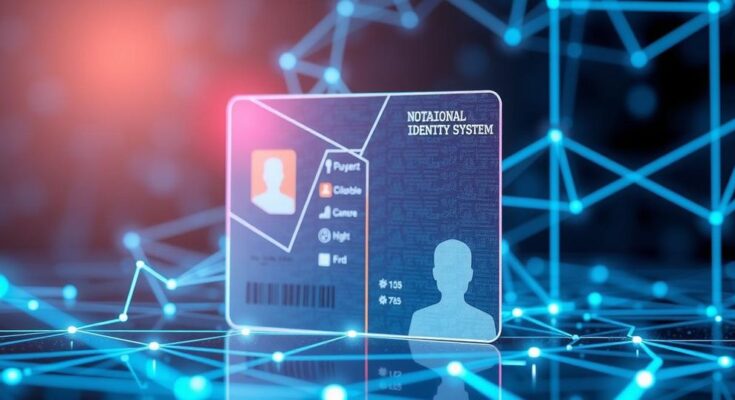Ghana’s NIA plans to transform the Ghana Card into a multipurpose ID, linking it with mobile money and banking services for enhanced convenience. Acting CEO Yayra Koku outlines ambitious plans to simplify processes such as passport applications and replacing lost cards. The NIA emphasizes biometric verification for identity security amidst rising identity theft concerns, enhancing the overall integrity of the identification process.
The National Identification Authority (NIA) of Ghana intends to broaden the functions of the Ghana Card, transforming it into a multipurpose card to enhance financial inclusion and simplify access to various government services. Yayra Koku, the acting CEO of the NIA, shared in a recent post that a key element of this initiative is to integrate the biometric ID with mobile money and banking platforms. This integration aligns with the initial purpose of the card, designed to facilitate easier digital transactions for citizens.
Koku envisions a future where the Ghana Card can be linked to mobile money and bank accounts, allowing users to purchase goods and services without needing to know the vendor’s contact details. Additionally, he proposed that the card could serve as a driver’s license, simplifying the process of obtaining this document by removing the need for in-person visits to the Driver and Vehicle Licensing Authority (DVLA).
He further elaborated on how the Ghana Card could streamline processes such as passport applications, allowing citizens to apply from home and collect their passports at their convenience. The card could also enable toll payments through linked smartphone applications, creating a more efficient transaction process.
Koku stressed the vision of making the Ghana Card significantly more functional, including the ability to easily replace lost cards. He suggested a future where individuals could obtain a replacement card with minimal hassle, merely by visiting a booth, providing their fingerprint, and receiving a new card immediately.
In a related advisory, the NIA warned against relying solely on non-biometric identity verification methods due to the rise in identity theft cases. The agency stated that institutions should implement biometric authentication to ensure the accuracy and security of identity verification, referencing the legal framework that supports such procedures.
Moreover, the NIA has developed an advanced Identity Verification System Platform (IVSP) to facilitate biometric checks against the National Identity Register. This system is intended to enhance the security and validity of the identification process while promoting public confidence through accurate and auditable verification reports.
In conclusion, Ghana’s National Identification Authority aims to evolve the Ghana Card into a multifunctional tool that enhances convenience for citizens by integrating various services, including mobile money and banking. The emphasis on biometric verification underscores the commitment to security and precision in identity management. Should these initiatives succeed, they will significantly streamline access to essential services and contribute to the overall goal of financial inclusion.
Original Source: www.biometricupdate.com




